Jackie LaLonde
All the Winds Bless the Lord

The Arrow and the Song
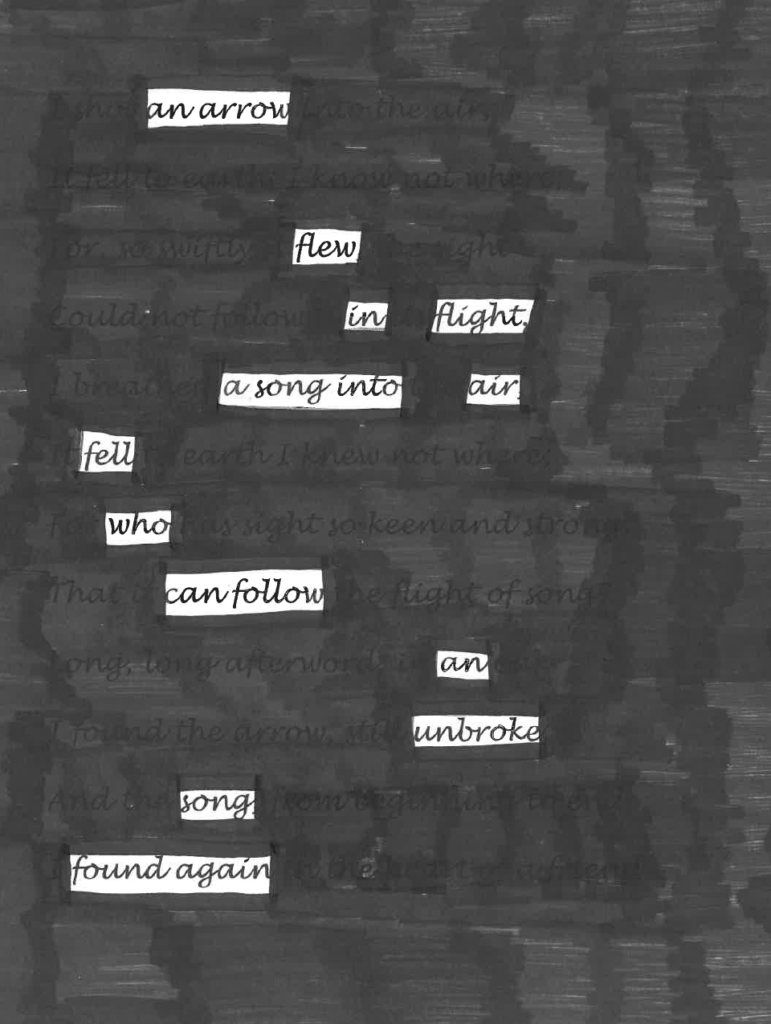
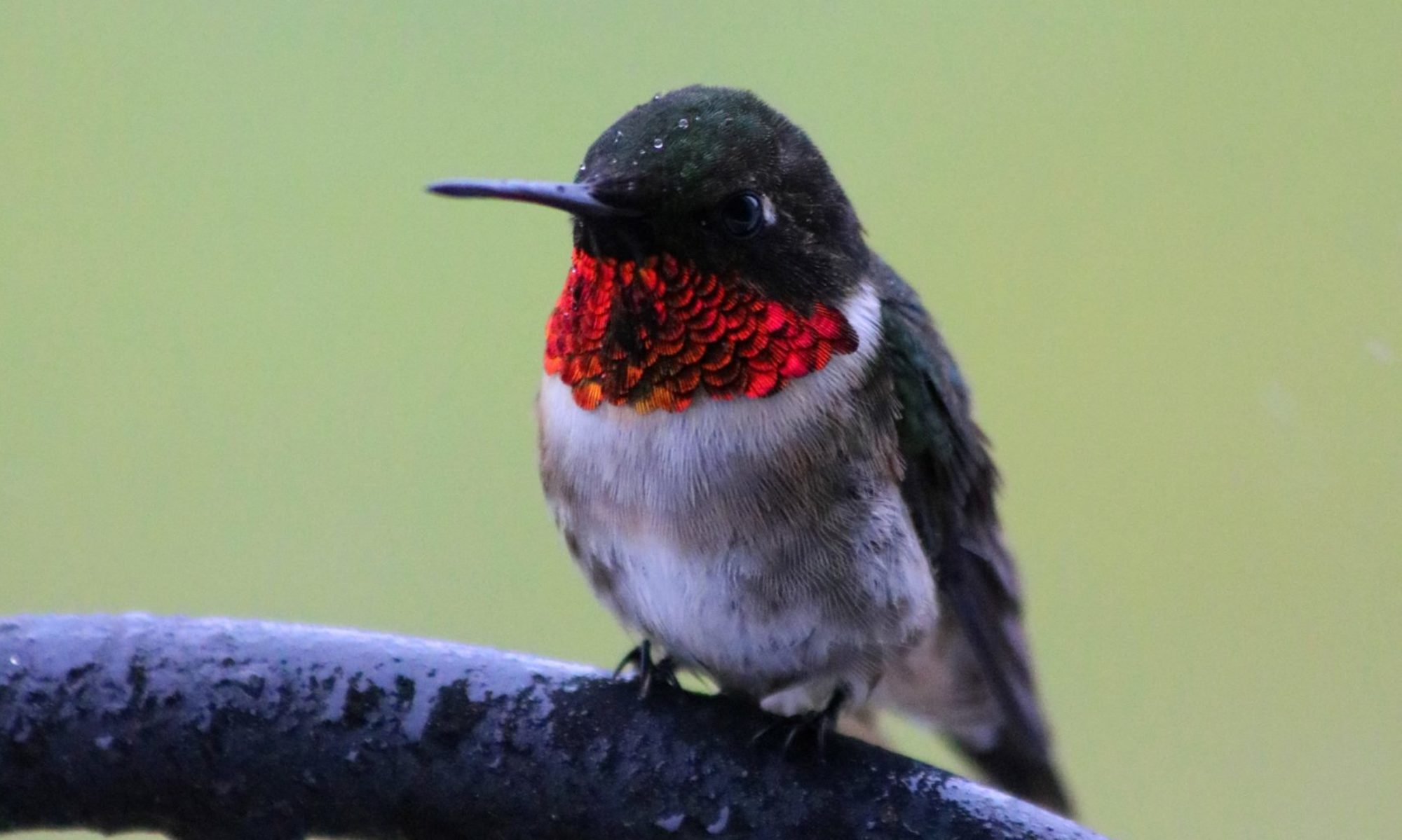
Lake Superior State University
Jackie LaLonde
All the Winds Bless the Lord

The Arrow and the Song

William Mourufos
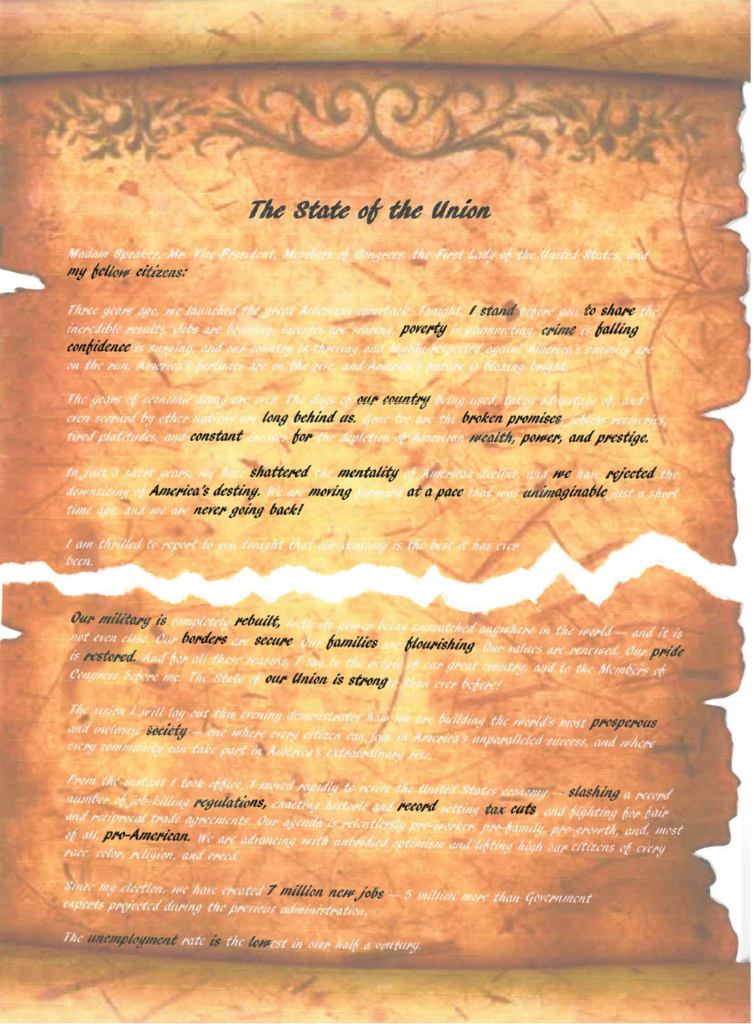
Casey Johnson
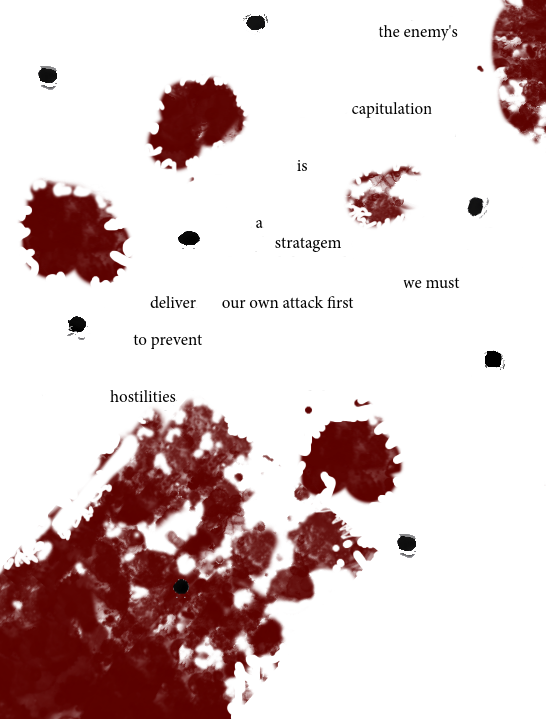
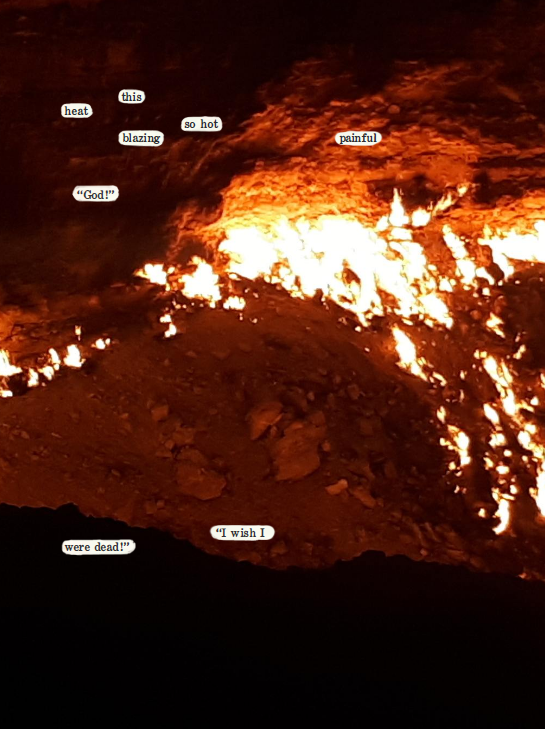
Julie Schemm
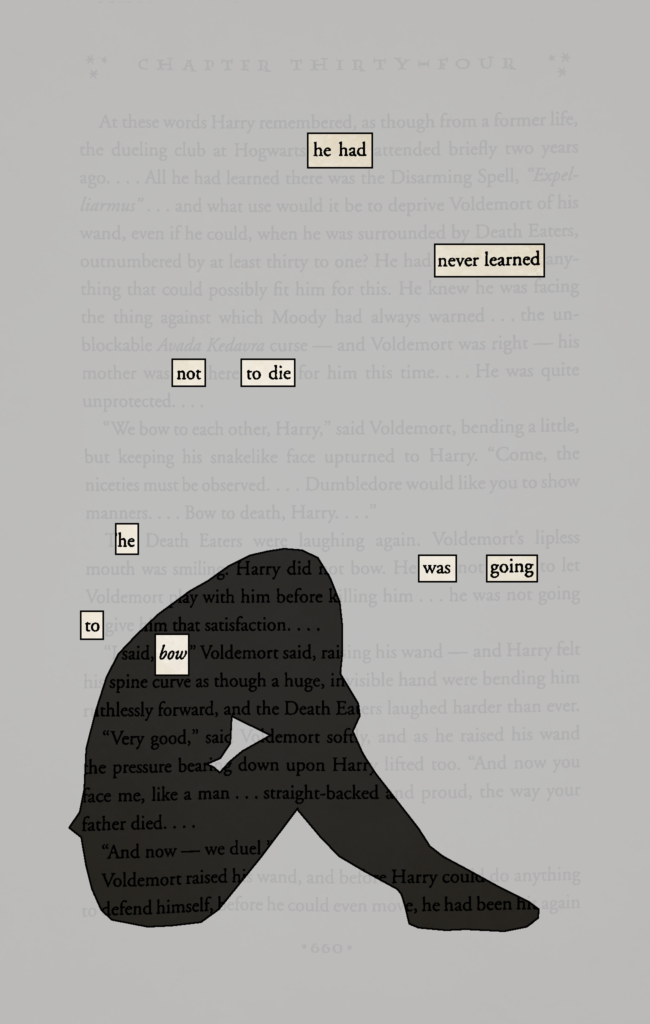
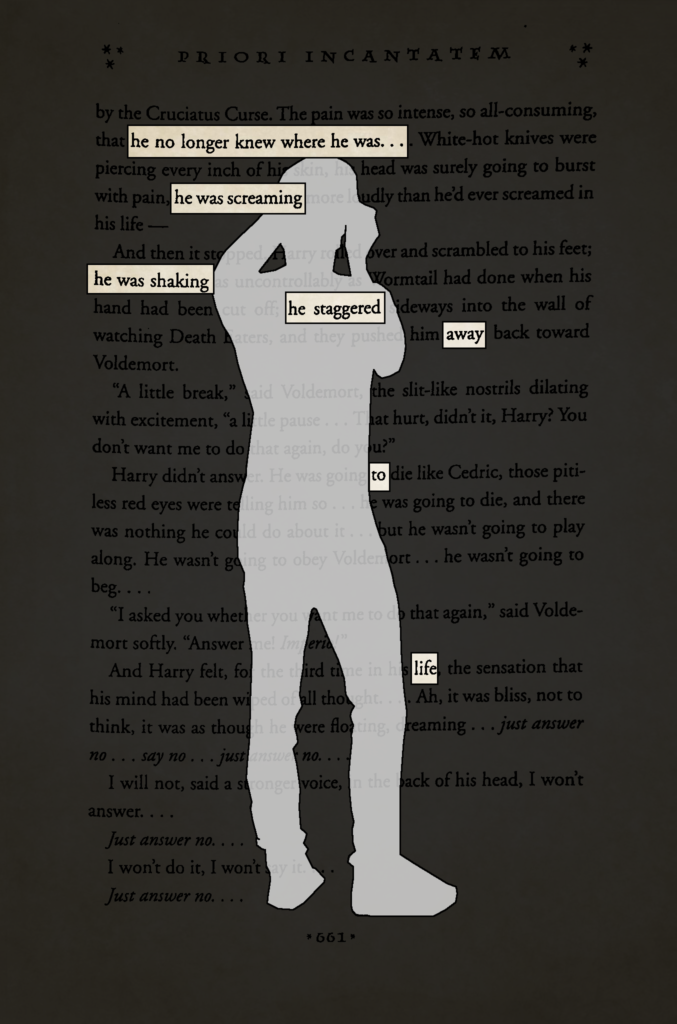
Katie Davis
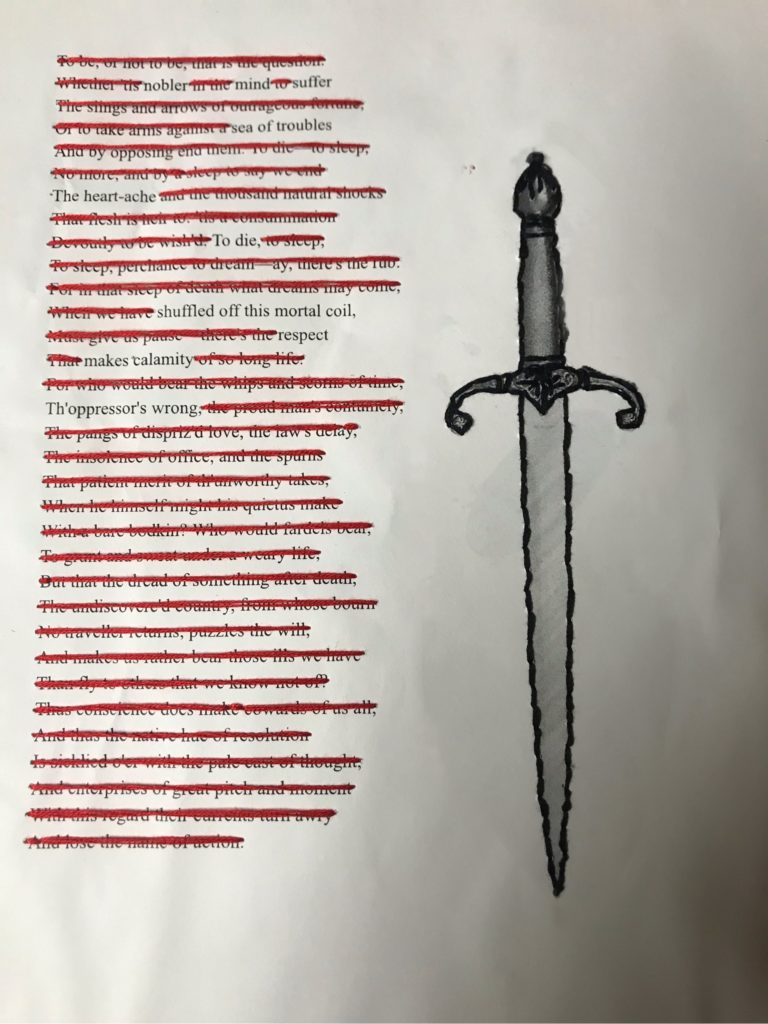
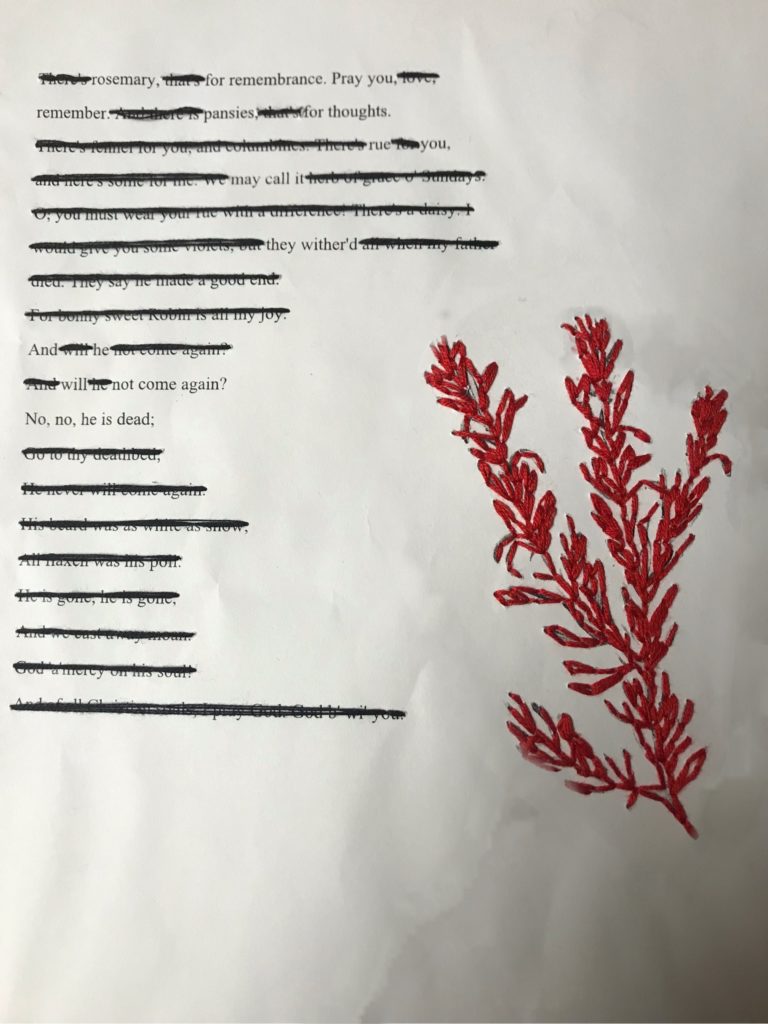
Jackie LaLonde
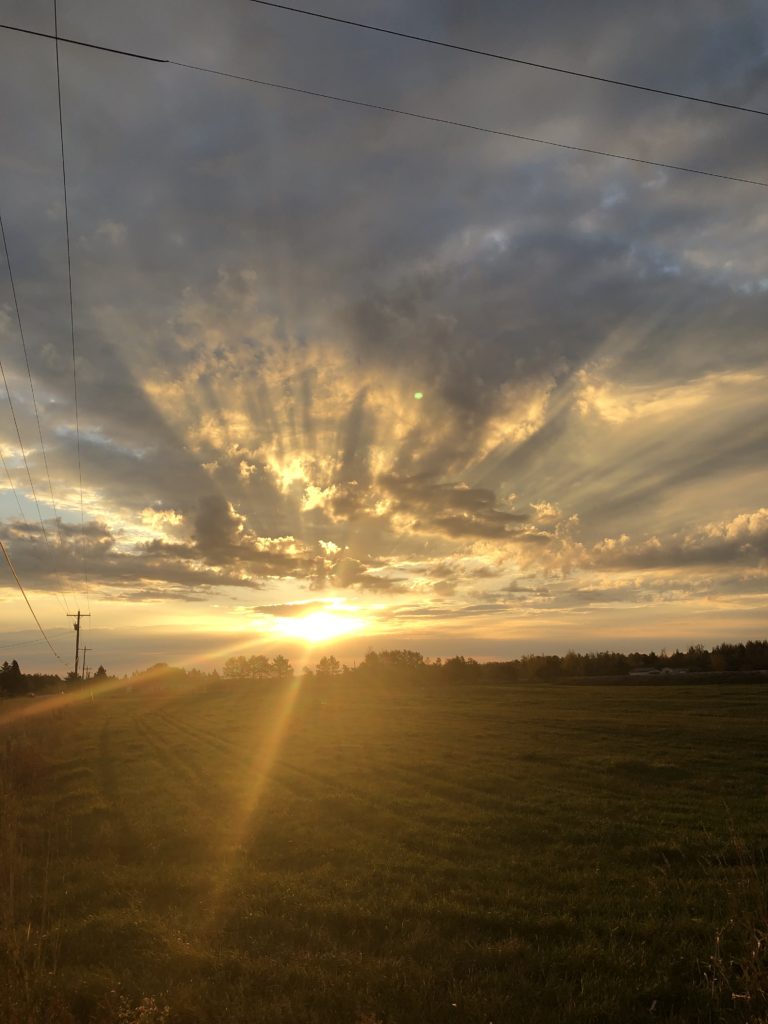
Jewelynn Gonzalez

Lexi Wilhelmson
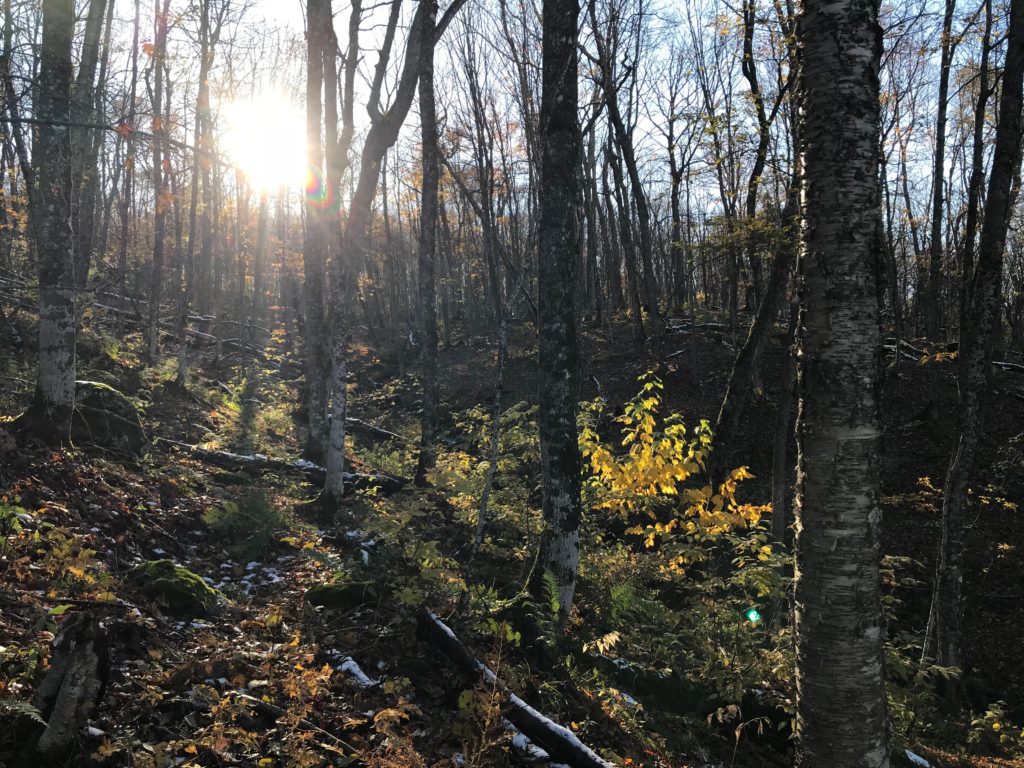
Hope Fabian



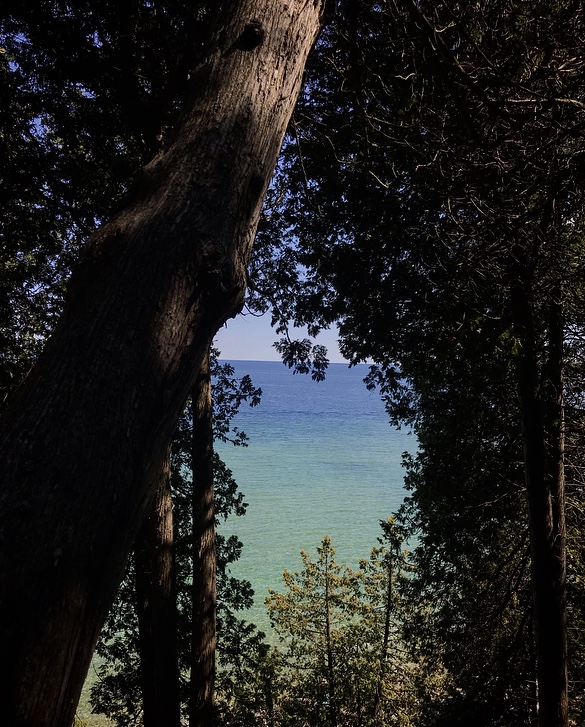
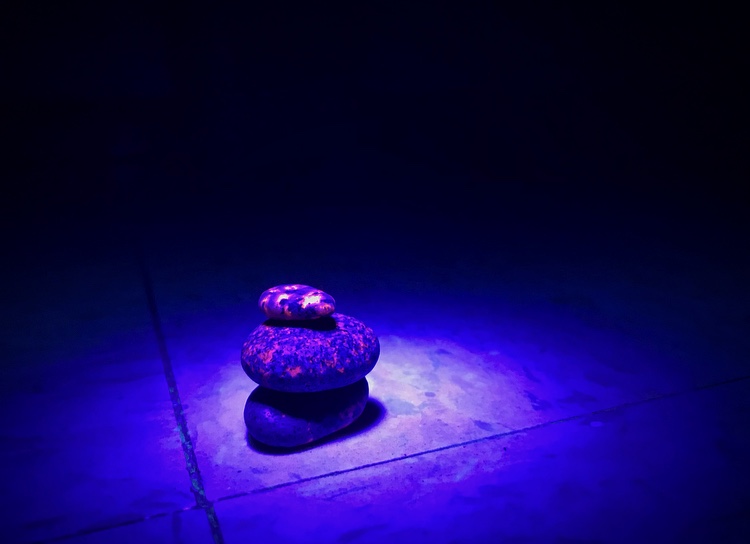
Katie Davis
The screaming, blaming, throwing, hitting, it always seemed to come out of nowhere. Some days we were happy; some days we could barely be under the same roof. It was always my fault. Somehow everything that happened: things breaking, chores undone, house unclean, unsaid tasks ignored.
I never knew why, but Mom was always angry, I knew that. I started to draw my own conclusions the older I got: there was —resentment, I stood for her failed marriage, she always wanted a perfect kid, I reminded her of herself and him, and oh how she hated herself and him. The anger always came at night—after a long day’s work, after my laziness—sometimes she was only angry, and my mom disappeared into the rage.
So much of my childhood was lost to the fire that consumed my mother in these moments, so much I’ve willed myself to forget—if I clung to these moments I would resent her the same way she always resented me; I won’t allow that for myself; I can’t resent both parents. If I resented both of them, I would be too much of an artist cliché. My life has been a senseless mural, splashes of color from different things, but most of these, moments of rage, a streak of black, like that painter tried to cover whatever mistake was there.
The first moment of the rage that isn’t a black streak was when I was almost 3 years old, my infant sister can’t be placed in this moment, I like to pretend the one-month-old was sleeping soundly on the second floor, while I cowered in the bathroom downstairs, tucked between the toilet and the bathtub. “I’m leaving. You can deal with this on your own.” The words echoed inside me, my first recognizable moment of fear, glowing buttons of a phone blurred through the tears, shaky fingers dialing 911, a fear of what would happen to the baby if the fingers hit call. What power would a two-year-old have to protect the baby if mom was gone too? The police would separate-us. Dad was already gone. Protect, protect,wait. The waiting felt like forever, the tears never stopped falling, the hands never stopped shaking, the baby–miraculously–must have never stopped sleeping. Eventually Mom had to have come back home.
The streaks of black become thicker after that, no real memories of my sister growing up, of my grandma before she passed, of my father when-when he came to see us of my friends, of myself. The streaks are thick and heavy on my life. Only glimpses of things exist for most of it. A shaky hand holding a knife for protection, taunted to use it. A shaky voice yelling they’ll call CPS, taunted they won’t be believed. A shaky teenager pumping with teenage anger, pulled by-my hair underneath the Christmas tree. All of the shaking was mine, but I don’t remember the spark to the rage, or the resolution. It’s always what the rage does or says that sticks, never what I did to cause it, never what I did to run from it.
Another moment exists with clarity, the longest one besides the time she threatened to leave me with a newborn. My mom loomed over me on the porch, her tongue hurling senseless insults, her screams cutting through my heart-, hand clenching an unseen plate, legs shaking with rage, face turning red, blaming me once again.
The orange plate exploded in front of me, exposing their unpainted ceramic insides—it was like a new world created by malice-laced action, the whites of the inside- danced like the stars against the dark evening ground, and I stood there while another plate exploded, this one white. The second one created more stars, while the waters of their new worlds seemed to pour down my cheeks. The shaky breaths I drew would be their winds, the dirt from the sidewalk they lay on their ground, the flinching their earthquakes, the screams from the rage their thunder. Only our porch light was on, it was a populated street, the neighbors always prying, but when a teenager had plates pitched at them as a fear tactic, not a single eye or ear could see what occurred.
Instead it was me, alone, who had to face the rage. I had to stand there, my cheek burning in the shape of her hand, the familiar prayer that it would bruise just once—then I wouldn’t have to tell people, they would just see and help. It becomes black again, I must have been allowed inside, it must have not bruised. My heart aches every time I think of my moments with the rage, even when survival instinct is activated, when all I could dream about was my own death to free me. But I couldn’t leave. At risk of something happening to the sweet little one-year-old that was always tucked away somewhere. At risk of the rage hunting me down. I had to stay, make sure the baby grew up safely, make sure I grew up. Now here I am, my mural finally in color again. There isn’t anything coated in black anymore. I exist in a way that is continually making sure I’m not another home to the rage. Make sure I don’t sling hurtful things at people I care about thoughtlessly. Keeping my anger inside — handling it, seeing if it’s real or just a misplaced emotion. It’s hard, but I won’t subject anyone else to the rage.
An Examination of the 2-28 Incident and Its Impact on Nationalist Chinese Governance in Taiwan During the White Terror (1947-1987)
Andrew Quon
In the realm of modern geopolitics, Taiwan’s position on the global stage is a contentious topic of discussion. To much of the West, Taiwan is an example of a successful modern Asian democracy. Behind the modern, progressive society seen today, however, lays a dark history that, while relatively unbeknownst to most in the West, plays a significant role in the island’s divisive partisan politics (Smith 145).
The end of the First Sino-Japanese War in 1895 saw China’s Qing dynasty surrender the island of Taiwan, at the time known by the colonial name Formosa, to Japan (Shackleton 1). For the following five decades, Formosa remained a Japanese protectorate. The surrender of the Japanese in 1945 at the end of the Second World War saw the island returned to China. By this point, however, the Qing dynasty had collapsed, and China was in the midst of a civil war between the Republic of China, ruled by the Nationalist Kuomintang (KMT), and the Communists. The KMT, which was widely considered the legitimate government of China at the time, assumed control of Taiwan in late 1945. In the years following, tensions grew between the KMT government and Taiwanese populace and on February 28, 1947, a confrontation between KMT officials and a Taiwanese cigarette vendor ignited two weeks of violent rioting across the island. The KMT responded by declaring martial law and suppressed the riots using overwhelming military force (United States Office of Public Affairs 926-927). While the exact death toll of the February 28, 1947 massacre, more commonly known as the 2-28 Incident, is a subject of debate, some Taiwanese government inquiries into the event estimated between 18,000 and 28,000 deaths. Some independent studies, however, have estimated the death toll to be closer to 100,000 (Minns & Tierney 105). The 2-28 Incident ushered in a five-decade long period of political repression and military rule over Taiwan known as the White Terror. The White Terror, named after the KMT’s fanatical anti-communist views and totalitarian style of governance, saw the incarceration of over 140,000 Taiwanese and the execution of over 4,000 alleged political dissidents (Jacobs 35).
Until recently, the 2-28 incident had been a forbidden topic of discussion in Taiwan. The relatively unexplored nature of the events surrounding the 2-28 Incident and subsequent White Terror have left many questions unanswered: What factors were responsible for the February 28, 1947 uprisings in Taiwan? To what extent was the KMT government justified in its actions against alleged communist subversion in Taiwan during the White Terror? How did the 2-28 Incident and its ensuing crackdown shape KMT governance of Taiwan during the White Terror from 1947 to 1987? While modern historians such as Craig A. Smith and Bruce Jacobs concur that the Nationalist police state pervasive through much of the 20th century was instrumental in forming the foundations of modern democratic Taiwan, the relationship between the 2-28 Incident and the development of the KMT state during the White Terror is rarely explored in depth. This paper will attempt to connect the two events by exploring how the politics and ethnic divide in post-war Taiwan that led to the outbreak of the 2-28 Incident helped lay the foundation for the following four decades of authoritarian rule during the White Terror.
The end of the Second World War marked a new beginning for Taiwan. After centuries of colonialism under the administration of both China’s Qing dynasty and Imperial Japan, the Taiwanese people sought the opportunity to be united with China as an equal to their mainland counterparts. The Nationalists and their “Three Principles” (nationalism, democracy and socialism) were immensely popular among the Taiwanese population and the KMT governors were warmly welcomed during the initial takeover in late 1945 (Stuart para 2). These initial feelings were short-lived, however, as widespread corruption, mistrust in the Taiwanese for their role in the Second World War and incompetent KMT leadership in the immediate post-war era divided Taiwanese society along ethnic lines.
In the five decades of Japanese colonial rule, Taiwan saw a period of significant economic and industrial development. Unlike other imperial powers of the time, Japan often encouraged the industrialization of its colonial assets. By 1945, Taiwan had a fully functioning, industrialized capitalist economy that was far more advanced than any seen in mainland China. This made the reintegration of Taiwan of significant importance to the KMT as the island’s economic and industrial capabilities could be used in the war against the Communists on the mainland. According to modern sociologists, the KMT under Generalissimo Chiang Kai-shek operated as a Leninist state (Ho 163-164). As is the case in most Leninist economic systems, the KMT relied heavily on state-centric economic planning and strict government control of the distribution of resources. Whilst the island’s economy was already to an extent centralized due to Japanese militarization during the Second World War, the system implemented by the KMT was far more authoritarian in nature with major political and economic repercussions (Ho 163-164).
Despite initial Taiwanese hopes that reintegration with China meant being treated as equals with their mainland counterparts, the KMT had very different views towards the indigenous population. During the Second World War, Taiwan’s industrial base was used to supply the Japanese military with munitions and weapons to wage war in China. Taiwan’s role in aiding Japanese military expansion seeded a high degree of mistrust in the mainland Chinese towards the Taiwanese. To the KMT, the reintegration of Taiwan was not a reunification with fellow countrymen but rather an occupation of enemy territories. Within the first few months of the takeover, much of Taiwan’s economic resources were seized by the KMT government under the pretext of confiscating “the enemy’s properties”. By 1946, over 1,259 units of economic assets in the financial, transportation, basic utilities and manufacturing sectors were seized by the KMT. As many prominent members of the Taiwanese political and economic elite earned their position through collaboration with the prior Japanese government, they became the primary targets of KMT nationalization programs (Ho 166).
The KMT’s distrust of the Taiwanese was further reflected in the workforce of KMT centralized enterprises. The KMT filled managerial positions across the island with KMT loyalists from mainland China on the basis of their “revolutionary patriotism” (Ho 163). Taiwanese workers in KMT state-managed enterprises were often laid off in favor of employing mainland Chinese immigrants. Such racially motivated discrimination caused unemployment amongst the indigenous Taiwanese to swell. According to estimates from the United Nations Relief and Rehabilitation Administration (UNRRA), the number of employed Taiwanese in Taiwan’s industrial sector plummeted from over 50,000 in 1945 to just 5,000 in 1947 (Stuart para 4). The return of the 170,000 Taiwanese soldiers serving in the Japanese military after demobilization only served to further exacerbate unemployment on the island (Phillips 279-280). To make matters worse, mainland Chinese workers were paid up to 60% more than their Taiwanese counterparts when performing the same jobs (Ho 167). These discriminatory hiring practices created significant discontent amongst the Taiwanese populace in the years leading up to the 2-28 Incident and remained a prominent point of contention in Taiwan until democratization in the late 1980s.
The highly centralized nature of the KMT regime and its clear animosity towards the indigenous Taiwanese set a dangerous precedent. In years prior to the 2-28 Incident, there were many documented instances of corruption and abuse of power from KMT government officials against the local Taiwanese. Chinese government officials often used their positions in government or connections to seize control of property belonging to local Taiwanese. As one Taiwanese observed, this was often accomplished by capitalizing on the anti-Japanese fervor of the post-war era: “When a Chinese with some influence wanted a particular property, he had only to accuse a Formosan of being a collaborationist during the past fifty years of Japanese sovereignty.” (Phillips 283). The KMT military and law enforcement in Taiwan were equally corrupt. According to a former UNRRA officer stationed in Taiwan during the initial KMT takeover, some Nationalist military police would arrest and ransom the family members of wealthy Taiwanese under the pretext of Japanese collaboration (Shackleton 5-6). The chloroforming and gang-rape of Taiwanese women by KMT soldiers was also common (Shackleton 5); acting as a form of vengeance for Japanese atrocities committed in mainland China during the Second World War such as the Rape of Nanking.
With rampant corruption and racial discrimination, the government became increasingly dysfunctional. The centralized monopoly control of the movement of goods caused shortages of essential goods. Internal squabbles between government officials saw the rapid spread of nepotism and the continued neglect of the wellbeing of the populace (Ho 166). To many Taiwanese, the KMT government, rather than giving them the proper decolonization and reintegration with the mainland they sought, was simply a continuation of colonial rule albeit one that was by far more disorganized, chaotic and incompetent (Phillips 276-277). Displeased with KMT rule, Taiwanese nationalist sentiments soared in popularity in the immediate post-war era and ultimately materialized into violent revolts in February 1947.
In the immediate aftermath of the 2-28 Incident, the KMT government motioned to consolidate its power on the island. Chiang, in a public announcement shortly after the 2-28 Incident, blamed the violence and chaos of the 2-28 incident on Communists and “Japanized renegades” (Kerr 435). This accusation, however, did not seem to corroborate with available evidence at the time. In a memorandum from the American Ambassador to China, John Leighton Stuart, to the Generalissimo dated shortly after the 2-28 Incident, Stuart noted that the Japanese “rigorously excluded all communist influence and activity” and had “filled the [Taiwanese] people with fear and distrust of communist doctrines.” (Stuart para 2) Stuart highlighted that the Taiwanese were, in fact, very supportive of the Generalissimo for his strong anti-communist stance during the initial takeover in 1945 (Stuart para 2). The absence of any major communist infiltration is further supported by US Foreign Service Staff Officer and Vice-Consul in Taiwan, George H. Kerr, who dismissed the threat of an organized communist movement on the island noting that there were less than fifty known Communists in Taiwan at the time (Kerr 435).
The claim that “Japanized renegades” were responsible for the 2-28 Incident could also be criticized as most Taiwanese harbored resentment towards the previous Japanese government who treated them as second-class citizens (Shih & Chen 90). It should be noted, however, that much of the educated upper-class of the time used Japanese as their main language of communication and were educated in Japanese universities. The large number of former soldiers in the Taiwanese population who served in the Japanese military during the Second World War may have also been a cause for suspicion. Many of these servicemen were, however, drafted into service out of necessity towards the end of the Second World War rather than volunteering out of loyalty to the Japanese (Phillips 279-280).
Chiang’s accusations against communist and Japanese sympathizers, while they may have been unfounded, did serve a purpose. One of the major reasons the initial riots of the 2-28 Incident were able to become as widespread as they were was partly due to the leadership of educated Taiwanese nationalists. Taiwanese nationalism was not a new concept at the time. During the 1930s, prominent members of Taiwanese society campaigned for greater autonomy from Japan until the outbreak of the Second World War saw the suppression of political discourse in Taiwan. Many of these same activists resurfaced after 1945 as relations between the KMT and the indigenous Taiwanese deteriorated (Phillips 279). Utilizing the false claims of Japanese and communist subversion, the KMT created a pretext to arrest thousands of Taiwanese nationalists in the educated upper-classes. According to Kerr, in the aftermath of the 2-28 Incident, anyone critical of the government was labelled as a “Communist” and was “sentenced to long prison terms or disposed of with a bullet.” (Kerr 435). This method of control allowed the KMT to eliminate its political opponents and seize additional economic assets to feed Taiwan’s state-centric economy. This practice gained traction throughout the early years of the White Terror where the loss of mainland China to the Communists and subsequent KMT exile to Taiwan spurred paranoid fears of an imminent communist takeover.
In 1949, the KMT was forced to retreat to Taiwan as the Nationalist war effort collapsed and the Communists under Mao Zedong became triumphant on the mainland. With the loss of mainland China to Communism, the KTM leadership feared Taiwanese nationalists would take advantage of the government’s weakened state to ignite a popular uprising similar to the 2-28 Incident. Fears of imminent revolution prompted the KMT to take drastic measures to strengthen their authority in Taiwan. This shift in mentality marked the beginning of the White Terror.
The loss of mainland China to communist forces and subsequent exile to Taiwan prompted the KMT regime to find means by which it could consolidate its power on the island (Chen 192). When protests began in late February 1947, the KMT initially permitted the public demonstrations and sought to negotiate a political compromise with the Taiwanese elite in order to appease the populace. Unfortunately, it was the KMT’s initial leniency towards the protesters that allowed the riots to become as widespread as they were during the 2-28 Incident with military intervention acting as a desperate last resort (Hou 49-50). With the rapidly deteriorating situation on the Chinese mainland, the KMT could not afford to repeat such a cataclysmic error. Despite warnings from American advisors that maintaining the martial law declared during the 2-28 Incident may deepen the divide between state and people, the KMT ignored the suggestion (Stuart para 126). By maintaining the imposed martial law, the KMT was successfully able to limit the ability of the Taiwanese to express their displeasure with the regime and allow the KMT military to better suppress organized dissident movements. This efficient means of control became especially crucial as KMT military capabilities became increasingly limited in manpower and resources following their defeat on the Chinese mainland in 1949.
To further consolidate their hold on the Taiwanese populace, the KMT made effective use of terror tactics. The KMT often paraded arrested dissidents through city streets before conducting mass public executions along major river banks across the island. The public executions assumed a theatrical character; utilizing the sounds of coordinated gun fire and imagery of blood-soaked rivers filled with bodies to strike fear into potential critics of the regime. Furthermore, the KMT took special care to arrest political dissidents in the middle of the night or in the countryside away from potential observers. The mysterious disappearances of friends and family in the night helped reinforce the omnipotent power of the central government and instilled fear among the Taiwanese population (Chen 192). The widespread use of terror tactics during the White Terror contributed immensely to the effective suppression of Taiwanese nationalist movements throughout the latter half of the 20th century.
While the coordinated use of terror tactics and martial law did act as effective tools in controlling the population in the early years of the White Terror, the KMT recognized that it required a more long-term solution to effectively subdue an increasingly antagonistic Taiwanese populace. Prior to the mass immigration of mainland Chinese in the late 1940s, Taiwan’s population was primarily made up of two ethnic groups: the Hakkas and the Hoklos. While both groups were descended from early colonists from mainland China, over time they developed their own unique languages and customs. Taiwan’s colonial history would ultimately help shape a unique, collective Taiwanese cultural identity that separated them from their mainland counterparts. By the onset of the White Terror, many Taiwanese rejected their Chinese ancestral origins entirely (Shih & Chen 93-95). This cultural identity served as a crucial unifying factor for Taiwanese nationalist movements.
Recognizing the threat posed by Taiwanese nationalism, the KMT sought to erase the Taiwanese cultural identity and remold Taiwanese society to resemble that of Nationalist China. For much of the 20th century, the KMT state promoted the idea of one day launching a counterattack against the Communists to reestablish Nationalist rule in mainland China. While this plan ultimately never came to fruition, the KMT groomed Taiwanese society to remain in a perpetual state of readiness for much of the 20th century. In 1953, the KMT made Mandarin Chinese the primary language taught in schools and the use of indigenous Taiwanese dialects was considered a disciplinary offence (Minns & Tierney 108). The KMT justified the suppression of local dialects and promotion of Mandarin in academic settings as an essential tool to prepare Taiwan’s youth to one day govern a reconquered China. To promote the use of Mandarin on a wider scale, the KMT associated the use of Mandarin as a means of demonstrating loyalty to the state and declared the use of Taiwanese dialects as unpatriotic (Sandel 529). By 1964, the use of Taiwanese languages in legal settings was outlawed; claiming that Mandarin Chinese was a far more “graceful” language than the “vulgar” Taiwanese dialects. In the 1970s, when the popular consumption of television became commonplace, the KMT instituted language requirements that required all television programming to be in Mandarin (Minns & Tierney 108). Linguistic laws that suppressed indigenous dialects remained commonplace in Taiwan throughout the duration of the White Terror and were not repealed until the democratization of Taiwan in the late 1980s and early 1990s (Sandel 530).
KMT assimilation programs were not limited to the suppression of language. Throughout the White Terror, the KMT glorified Chinese culture and history to forge a Chinese identity among the Taiwanese. The KMT claimed the role as the legitimate government of China whose duty it was to preserve “the precious heritage of a five-thousand-year-old civilization” from the “unChinese” Communists who were dedicated to the eradication of Chinese culture (Minns & Tierney 108-109). By glorifying the rich cultural history of China, the KMT attempted to highlight the alleged “cultural superiority” of the mainland Chinese and attack the “backwardness” of Taiwanese culture (Minns & Tierney 108-109). The Taiwanese education system was also altered to reflect Chinese “cultural superiority”. For instance, the teaching of Chinese history was emphasized in schools whilst the teaching of Taiwanese colonial history was suppressed. Street names in major Taiwanese cities were changed to be named after locations in mainland China and the practice of Confucianism, an ideology rooted in China’s imperial past, was widely encouraged by the state (Minns & Tierney 108-109). These methods of cultural assimilation during the White Terror proved effective in remolding the cultural identity of the Taiwanese people and prevented further popular uprisings for the remainder of the 20th century.
The rise of Taiwanese nationalism stemming from popular discontent with KMT governance in the immediate post-war era was the primary driving force behind outbreak of violence in February 1947. While there was little evidence to support their position, the KMT accused “Communists” and “Japanized radicals” as being responsible for the 2-28 Incident to justify the suppression of their political rivals. The defeat of the KMT at the hands of communist forces in mainland China in 1949 combined with the rise of Taiwanese nationalism prompted the KMT to assume a totalitarian style of governance during the White Terror. A systematic program of cultural genocide was conducted throughout the White Terror to remold the Taiwanese identity and foster loyalty to the KMT state. The significance of the 2-28 Incident and White Terror cannot be underestimated. In the divisive world of Taiwanese politics, the 2-28 Incident is often used as by modern Taiwanese nationalists as a symbol of mainland Chinese oppression against the Taiwanese people (Smith 145). The repercussions of the 2-28 Incident and White Terror are also significant from a global perspective. Given the authoritarian nature of the KMT state during the White Terror, the continued support of Nationalist China through much of the 20th century from Western democracies raises an interesting moral dilemma. To the American political theorist Robert A. Scalapino, this dilemma raised an interesting question: “[How can democracies such as the United States] fulfill the awesome responsibilities of being a global power, entrusted with the defense of many societies, and at the same time, remain faithful to the principles that constitute our own political-ethical creed?” (Kerr xiii) Can the support for a despotic government in an effort to defend the ideals of liberty, freedom and democracy ever be justified? Even though modern Taiwan has shaped itself into a progressive democracy, the island’s authoritarian past has had tremendous socio-political implications that permeate beyond its borders and holds many important lessons for future generations.
Works Cited
Chen, Ketty W. “Disciplining Taiwan: The Kuomintang’s Methods of Control during the White Terror Era (1947-1987).” Taiwan International Studies Quarterly, vol. 4, no. 4, 2008, pp. 185-210. url: http://tisanet.org/quarterly/4-4-8.pdf.
Ho, Ming-sho. “The Rise and Fall of Leninist Control in Taiwan’s Industry.” The China Quarterly, vol. 189, 2007, pp. 162-179. doi: 10.1017/S0305741006000853
Hou, Kuang-hao. “A Tragic Ethnic Conflict in Post-war Taiwan: Reviewing the 228 Uprising Through the IMEP Model as the Primary Analytical Framework.” East Asia, vol. 32, no. 1, 2015, pp. 43-65. doi: 10.1007/s12140-014-9222-2.
Jacobs, Jeffrey Bruce. Democratizing Taiwan. Brill, 2012. EBSCO, http://search.ebscohost.com/login.aspx?direct=true&db=e000xna&AN=432380&site=ehost-live&ebv=EB&ppid=pp_Cover.
Kerr, George H. Formosa Betrayed. 2nd ed., Taiwan Publishing Company, 1992. The Taiwan Library Online, http://homepage.usask.ca/~llr130/taiwanlibrary/kerr/kerr.pdf.
Minns, John and Robert Tierney. “The Labour Movement in Taiwan.” Labour History, no. 85, 2003, pp. 103-128. doi: 10.2307/27515930
Phillips, Steven. “Chapter 10: Between Assimilation and Independence.” Rubinstein, Murray A., editor. From Taiwan: A New History. M. E. Sharp, 2007, pp. 275-319. University of Vienna, https://www.univie.ac.at/Sinologie/repository/uePRDemokrUIdentTaiwanSeit1980/Phillips_BetweenAssimilationAndIndependence.pdf?fbclid=IwAR2edZUigKEm5LOjAInAkuBC-u-h30fYdSvgY2xy2H97hE9ze7K2rZ_uCSg.
Sandel, Todd L. “Linguistic capital in Taiwan: The KMT’s Mandarin Language Policy and Its Perceived Impact on Language Practices of Bilingual Mandarin and Tai-gi Speakers.” Language in Society, vol. 32, no. 3, 2003, pp. 523-551. doi: 10.1017/S0047404503324030.
Shackleton, Allan J. Formosa Calling: An Eyewitness Account of the February 28th, 1947 Incident. Taiwan Publishing Company/Taiwan Communiqué, 1998. The Taiwan Library Online, http://homepage.usask.ca/~llr130/taiwanlibrary/formosacalling/formosa-calling.pdf.
Shih, Cheng-feng and Mumin Chen. “Taiwansese Identity and the Memoires of 2-28: A Case for Political Reconciliation.” Asian Perspective, vol. 34, no. 4, 2010, pp. 85-113. url: https://pdfs.semanticscholar.org/8518/7abb12e48b7c38f54b77ac19e1e9f3dbdfdf.pdf?fbclid=IwAR3y2dGOiLjifwQ6sbQznMQcD9Emp6sc-QE7vIa7hYJcNqREKx38WSDoGLc.
Smith, Craig A. “Taiwan’s 228 Incident and the Politics of Placing Blame.” Past Imperfect, vol. 14, 2008, pp. 143-163. url: https://journals.library.ualberta.ca/pi/index.php/pi/article/view/4228/3465?fbclid=IwAR26IJCpEOS-QGOUGi_cTxQ_uSKqkbr2c__tf1psmTDgZ93cB4we9emgNeM.
Stuart, John Leighton. Memorandum on the Situation in Taiwan to Generalissimo Chiang Kai-shek. 18 Apr. 1947. Taiwan Documents Project, http://www.taiwandocuments.org/228_01.htm?fbclid=IwAR35tzxXla7DFU0IAXL6mxD6t-yMGE90x6ZqjbSug_qwjn8Ke99lsVhBWHw.
United States, Department of State, Office of Public Affairs. United States Relations with China. Hathi Trust Digital Library, August 1949, https://babel.hathitrust.org/cgi/pt?id=umn.31951d01115459w;view=1up;seq=1.
Chase Meehan
Winter is a damned thing. There is no dry state in such a time. That’s all I can think about while they guided me into this little one candle hut. Over and over again they repeat the word “Spion!…Spion!” and hit me, all the while I say “no” with the little energy I retain. What’s the use of fighting such conviction? How will I convince them to eradicate the image of a German in another country’s uniform? My body shivers as the candle’s warmth grants me some wicked joke of hope. How I wish that this hut was the wick of the candle’s flame.
I am ripped from my now beloved interrogation chair and taken outside. While standing and blindfolded, I am tied to a post that can only bare one outcome. I would think most would struggle in such a moment as this, but a sense of calm arises that seems to slow my sense of time. My eyes close as I picture Alstadt. I drift off thinking of a tune that used to play outside a shop just two doors down from my home. My fingers dance the notes as if they are playing an instrument not quite invented. The voices of the soldiers begin to drone out as I am there again, on the doorstep, watching cars and trams pass before me. A smile places its presence upon my face bestowing a feeling of happiness unknown until this moment, as if I am going to that treasured stoop soon.
Just then, I notice some looseness in the rope around my right wrist. The cold begins to dissipate from my body as a new sense of purpose lingers over me. With a slight shake of the arm, and some interrogation from the fingers from my left hand, my right wrist becomes unrestrained. A fool would give away such an opportunity like this with frantic movement, so I calm myself as I remember the walk towards the hut, past the post that almost captured my fate. I recall a slight deviation in the woods to my right…..it must be something like fifteen meters, before a slight defilade. I must act. “What a cold night” is the last thing I hear the soldiers say as I take action and start running towards my intended escape route. Blindly at first, I dash to the right of the pole, and the opposite of the voices before unfastening my blindfold. Bullets and screams chase after me as my one newly free eye catches the beginning of the change in elevation, all while my feet already know its presence. The quick tumble down the small hill provides some much needed cover as my pursuers take aim from afar.
Running is a simple chore in a time like this. A chore I must say I have never completed with such efficiency before. Conceilling my dastardly route is the protective fingers of the Ardennes. Its stubbornness has shown through many a war, and now it acts as a backdrop that will mask my escape. After much time, I reach a clearing. On its edge I stop and examine my future movements. The clearing is one of natural creations: some small outlying trees surround the perimeter, while the center is guarded by the poorly timed full moon. Before deciding my next move, I listen closely for my pursuers.
After some deliberation, what could have been a full ten seconds of silence, I began my push around the right side of the clearing. This route contains some heavier shrubbery which would make my progress slow, but would conceal my further withdrawal if my ears had deceived me. A small hut lie ahead with a small candle burning in the window. My hands began to feel warm as if they were huddled around the little ball of flame. This warmth quickly leaves my body as the flame is extinguished. A hunger begins to consume me. This hunger is not one of nourishment, but one of desires. A hunger of holding a rifle. A hunger of getting back to my lines. What is there left in a life such momentarily stricken as mine, but to take action against those who wish to keep it that way? The sense of vengeance takes aim as I am further motivated to join the ranks of my own.
At last, a road appears before me some hundred meters away. I see lights that momentarily blind, as if waking from an unconscious state. The heels of boots hitting cobblestone begin to ring out from behind it, beating in such unity as to provide an amplification of the rubber on stone collision. The unity provides another clue. The soldiers of our ranks are of professionalism, yes; but more so are they the embodiments of tired souls. Their marches rarely fit the description of unity in these late days. We march with scattered intentions, scattered thoughts, unified by one mutual feeling: exhaustion. These soldiers must be from the same origins of those I have just escaped.
The road does pose as a guide through this rough entanglement I now call a friend. I use this to my advantage and decide to travel behind the convoy of marching soldiers, for one does not march in such orderly fashion away from a fight. As I near what I believe to be the front lines, I began to hear voices; frantic voices that are muffled in a sense to obscure their travel to any distance beyond the intended recipients. From here, my approach must be slow. One of great calculations.
The location of the voices becomes apparent as I near yet another clearing. This space is riddled with craters and remnants of past altercations in which many must have lost dearly. The landscape of which is illuminated by the ever persistent moon. Spotting a small communications trench in the center in front of me, I weigh the futility of the opportunity. The trench is covered by newly uprooted oaks, some of which display the vast power of the artillery from both combatants. It appears as if this route of escape is clear underneath, but the other side is out of sight. How much open terrain is left before I vanish from the glow of the natural flare?
The question could not be deliberated anymore as the voices appear closer. Making a dash for the trench, I keep my body low and my eyes prevalent. The snow amplifies my movements as every step brings about a crunch that is ever more present. Stealth is no longer an option as my frantic state drives me to run harder and harder to the protection of the devastated landscape. As I near its entrance, shouts from behind me ring out with confusion. These shouts are different: foreign by origin, but aim at sincerity. This sincerity suggests for my well being, sincerity for questioning the choices that are about to be made.
Hesitating only briefly, I notice that the other side of the trench previously obscured from my vision is protected by some low lying tree shrapnel. My run must now turn into a knee over elbow crawl as I make this final plunge for security. Keeping my body low to the ground to avoid the jagged edges of my salvation, I hear what seems to be the amplification of my heartbeat against the ground. Its reverberation makes its way to my ear consuming all that enters it. My heart races as if being stirred by a final frenzy of fuel. A ridge lies before me that will allow me to slither back into the protective hug of the trees. As the shrubbery recedes, my crawl transforms into a hysterical run that aches for protection from the moon’s light. As my foot enters the shade, a voice from the front issues the command to fire. With a rush of confusion and winter’s cold touch, my vision becomes dark and my wrists feel the irritation of rope. The snow beneath where I stand tied becomes stained with the color of delusion.
Jewelynn Gonzalez
The weight of a hundred pounds kept Abby’s eyelids tightly shut. Pain gripped her neck, wrists, and ankles at each movement; she raised her arms to her face, pulling at the raw flesh on her ankles. As if on reflex she threw her arms down, relieving the pain at her feet, only to cause the flesh on her neck to tear. Feeling the warm drip of blood start to trickle, she tediously bunched her body, sitting hunched over. Her body’s protests and fits of aching muscles, impaling themselves with millions of tiny needles, was enough to temporarily keep her from moving. Whoosh, whoosh, head spinning, she curled her body further and further, fighting, struggling. Abby finally managed to bring her hands to her face, and coarsely woven fabric met her fingers. She curled her body further; she lifted the tied fabric over her head.
Abby’s eyes opened but soon shut. She could see the bright yellows and oranges of the setting sun even with her eyes closed as if the colors were burned into the underside of her eyelids. Slowly and ever so cautiously, Abby’s brown eyes fluttered open a second time, taking in the lush greens and browns of the forest around her. Straining her neck in every direction Abby closed her eyes, listening, waiting for any sound indicating someone’s presence. Abby heard the birds chirping their sweet songs of serenity, squirrels and chipmunks chasing and chittering, stomping and shuffling through the fallen leaves littering the forest floor. Taking a deep breath, the smell of moss and earth flooded her senses. On the breeze, she heard the faint sound of flowing water. Looking around she could make out a moss blanketed hill scattered with rocks through the trees.
Flopping to her side Abby found a stick to chew on, to avoid biting her tongue, as she squirmed and wiggled through the dirt and leaves tediously inching her way forward. Tears started streaming down her face as she rubbed her burned ankles to bleeding; the collar of her blouse started to soak with a mixture of blood and sweat; her neck burned as if the rope around it had caught fire.
A twig snapped from behind, freezing her in her tracks. A rhythmic pounding echoed through her ears, her chest tightened, and her eyebrows rose, widening her eyes. The taste of wood entered her mouth as her jaw clenched, sinking her teeth further into the stick. Originating from behind her, a shuffling of leaves and another stick snapping echoed through the trees. With every inch of her body aching and her left thigh spasming, sparks of pain shot through the sole of her foot; Abby turned around to face the disturbance. She flinched at the noise made from the debris around her, until she was looking into the innocent brown eyes of a deer. In a flurry of terror and excitement, the deer ran, willing its muscles to move far and fast. Within moments the deer was out of sight and relief overwhelmed Abby, giving her the courage to keep moving.
Gritting through the struggle and pain, Abby finally made it to the hill, no longer feeling the sparks of pain in her foot. Fumbling over rocks with her fingers, Abby struggled to try to find a sharp edge of a rock until finally finding one. Edging closer to her chosen rock, Abby got to work; thrashing her body this way and that pulling on the rope as the spun fibers began to strain and weaken against the weather-sharpened edge. The rock broke through and a piercing pain shocked Abby’s shoulder as the rope broke apart, slamming her body into the rock’s cool surface. Instinctively reaching up to massage her shoulder. Abby pulled on the rope still attached to her feet and bashed her knees on the rock. Blood trickled down Abby’s leg tickling the purpling skin as it dripped.
The relief in her neck and back was enough to give Abby the strength and energy to readjust, tugging on her ankles with every move. Dirt forced its way deep into the open flesh; pain flooded her senses as she thrashed and writhed about cutting at the bond between her feet and hands until at last the familiar sound of rope breaking, the fibers ripping as the rope is rubbed against the rock. Abby’s muscles relaxed in relief as her back stretched to its full length. Now having acquired a technique, Abby cut the rest of the rope, freeing her body from all restraints. Looking up at the canopy of greens and oranges Abby lay there, giving her aching muscles rest while she tried to figure out how she got into this mess.
#
“Abby, you must be careful; there are many bandits out there who will take what they want when they want. This delivery is of the utmost importance.” A short European woman clothed in a brown woolen dress covered by a deep burgundy apron had stood before her. Seeing Abby’s worried face, she added, “Don’t worry, Shakespeare knows the way.”
She raised a hand to caress the soft buckskin colored horse, whose coat shone in the early morning light. The woman stepped forward and encased Abby in an embrace before Abby jumped into the saddle and Shakespeare took off running.
With nothing to do except hang on while Shakespeare led the way, bounding across the open prairies of the Kentucky countryside, Abby was alone with nothing to occupy herself with but her mind. Mind spinning, body jostling this way and that as Shakespeare bound toward the Appalachian Mountains, Abby rode on, thinking about the duties put upon her by the President of the United States. President Franklin Roosevelt thought that providing books to the people during the Great Depression would educate them enough to work and raise America like a mighty phoenix from the ashes. Abby was one of many packhorse librarians, spreading education throughout Kentucky. A heavy feeling crept up to sit upon Abby’s shoulders until she was distracted by the fast-approaching forest, freeing her from her doubts.
Upon entering the forest Abby could feel her defenses breaking at the sight of rich green and the scent of the sweet earth. Shakespeare slowed his pace to a walk and Abby pulled out a book, feeling the pages flip and fumble between her slender, work-worn hands. Taken away by the story unfurling between her fingers, Abby failed to notice the person who followed her until it was too late.
#
Mustering enough strength, Abby planted her feet on the ground. A deep exhale, she placed her hands on the cool rock face before mentally counting to three, then heaved herself into a standing position. Eagerly looking around, searching for something to help her, Abby’s eyes landed on a fallen tree branch, dried and twig-less. Grabbing the stick, she used it as an oversized cane and hobbled over to where she was stranded. To her surprise the saddlebags were there, filled with the books. Seeing the saddlebags on the ground she realized she had completely forgotten about Shakespeare, a feeling of both dread and relief sunk to the pit of her stomach as she realized it was just a roadside robbery and she had gotten in the way.
Acknowledging the setting sun, Abby went to retrieve her survival gear, struggling and limping only to find them stolen. Using the knowledge she’d acquired from reading books, Abby got to work, and relied on the oak branch to get around. Once finished gathering everything she would need, Abby then made a lean-to; it was well after dark when the fire finally sparked to life. It didn’t take long before the dancing flames and sizzling sparks lulled Abby to a deep and peaceful slumber.
She awoke the next morning to the chirping and singing of birds, their songs a relaxing alarm. Abby moved and found her muscles no longer in excruciating pain, rather a dull ache. Abby rose and buried the ashes with dirt. Fearful of the wilderness and its secrets, Abby emptied her pack and filled it with mushrooms, berries, and any other edible findings before she walked to the hill that helped set her free. Abby crested the top of the hill and looked down to find a creek scattered with round rocks; the brown, black-streaked, sandy bottom could be seen through the clear water.
#
Abby sat on a soft-cushioned chair in an elegantly decorated room of the White House.
“My love, is there anything you would like to say to our new packhorse librarian before she endures her first round of drop-offs?” the deep and confident voice of Mr. President Franklin Roosevelt echoed through her head, giving her momentary comfort in her now primitive state, before Eleanor Roosevelt’s voice floated gracefully to her ears.
“A woman is like a tea bag–you can’t tell how strong she is until you put her in hot water. Good luck, my dear.”
With a smile Mrs. Roosevelt rose from across the room to give Abby a farewell hug.
#
As she walked back to the bags, Abby ditched her thoughts of tucking tail and heading home; she started to shove books into her backpack and managed to fit them and her harvests with the opening unlatched. Abby wobbled at the initial weight, swaying as she moved, Abby followed the horse prints; after all, the library horses were very dedicated and would rather die than not fulfill their task. Abby was at least going to get closer to her drop-offs.
Jewelynn Gonzalez
Books,
a form
of magic,
where at your touch,
and the flip of a page,
you are taken away
to a place of wild wonders,
where your imagination roams.
You find the magic mesmerizing,
intricately woven by the writer.
As a wanderer, you seek no escape,
wanting more, you flip through the pages.
This, my dear, is a spell enjoyed
by you so much, you want to
cast a spell of your own.
You just need to write
and weave
a story
of your
own.
Sophie Paquin
We were wild and impossible,
far-fetched from a fairy tale
falling
and everyone said we would be married
if it weren’t for my gypsy heart.
Leah Mockridge
I am no disciple,
I am the deity of misplaced desire.
Men often mistake my ego for exaltation.
My body is no place for expiation even as
hands press into my flesh.
Call it their providence.
Call it a gift from
God.
Dirtied hands delve into my holy water,
hoping that somehow, I could save them from sin.
I am their temple of temporary absolution.
The notion that women like me are just bread to be broken
for communion.
Indoctrination from years forced to my knees in divine retribution
with expectation that I will break before the hymen.
The idea that virginity is just an apple waiting to be plucked
by some unworthy Adam.
I pray they don’t confuse me for an open chapel,
my blood for wine undrank, my body for bread unbroken.
I am no sacred place for stained men to seek asylum.
Unclean,
unwanted,
unwed.
This isn’t a confession of some cumbersome contrition;
in fact, I revel like red devils in the night.
Purgatory is just a name for the space between my thighs.
Penitence is what men prefer after impious action.
This isn’t faith, it’s fetish--
I am a sacrificial altar for masochists masquerading as messiahs.
Palms up they pray in demeaning doxology.
This is a covenant of crucifixes and false prophets,
filled with gnashing teeth and unhinged jaws,
hungry for whatever holiness I’m willing to impart.
Take all that I am worth and call it retribution.
Take all that I have and call it tithing.
This temple filled with false idols and forked red tongues that cry out,
“Repent, repent, repent!”
The serpent reincarnate is hidden in the anointed.
He whispers to Adam:
Thank God,
and blame women.
Dylan Wyatt
Waking up from a beautiful dream is more painful
than repeated stings from fifty angry wasps,
when that glorious dream is briefly a reality.
Waking up alone to an eight a.m. alarm is as difficult
as breaking free of iron chains welded tight,
when two once slept wrapped in each other’s arms.
Waking up sometimes requires an amount of strength
that might not seem physically possible to muster,
when the silence of sleep is more pleasing than living.
Waking up shatters the perfect illusion of a dream
draped in shiny linens of molasses-sweet lies,
when feelings of happiness rely on memories.
Waking up is the first step taken on the journey leading
towards a sense of happiness and peace of mind,
when life feels like a nightmare and reality too depressing.
Dylan Wyatt
As a boy, I dreamed of being a Hero, silver longsword in hand.
To prove myself, I fought armor-clad knights for honor.
In faraway lands, I slayed fire-breathing dragons for riches.
In times of war, I charged into corpse-ridden fields for fame.
As a teen, I admired the rogueish Scoundrel, trained in cunning.
To prove myself, I stole nobles’ precious gems for profit.
In faraway lands, I spread damning, falsified lies for power.
In times of war, I concealed my true identity for protection.
As a young man, I discovered a Princess’s love, empowering the soul.
To prove myself, I bought bouquets of exotic flowers.
In faraway lands, I planned exciting adventures.
In times of war, I focused my energy on surviving.
As a man, I learned dreams become real.
As a man, I learned past mistakes don’t define me.
As a man, I learned the power of love.
What I once was made me who I am.
Dylan Wyatt
The first day of spring always comes out of nowhere. It awakens a dormant part of me. It reminds me of childhood joy. After months of cold winter days, dreary skies full of gray clouds, cars covered in a sheen of frost, the sudden warmth and sunny sky delivers a shock to my system. Out of the blue, with little premonition beforehand, one day just feels different.
The first day of spring. I am not necessarily referring to the day marked on calendars, underneath a picture of a breathtaking landscape or beagle puppies playing on a farm. The position of the earth, moon, and stars predestines that day. The idea of spring can’t be decided. It appears in the moment. Everyone experiences it a little differently, at a different time, for a different reason. Even after years of cycling the seasons, that first feeling of spring still returns to me every year, like a dog after it escapes and rambles around a little, like waking up on a Saturday morning, giving me renewed strength and hope, reminding me of fond memories of days gone by, blinked away, and lost to time.
When I think of a spring day—fluffy clouds floating in a sky of blue like stars stitched on Old Glory—tall oak trees swaying in the cooling breeze—dandelion puffs flying by in the air—I remember being a little kid and playing baseball in the backyard with my dad.
When I turned eight, my dad bought me a Rawlings mitt from the local sporting goods store. While other parents saved money by going to Walmart or a garage sale, my dad insisted on paying the extra money for a brand new, higher quality piece of equipment. It was one of the few instances my frugally-minded father opted for the more expensive item. He took baseball seriously. It was more than a game. It was his life.
Growing up, my dad spent all his free time playing ball, set state records in Little League, and dreamed of playing in the Major Leagues. He was talented enough to make it. As a kid, I idolized him. He was Superman. He was Sherlock Holmes. He was George Washington. I aspired to be half the man he was.
As soon as he put that first glove on my hand in the store, I dreamed of following in the family tradition. I imagined making diving catches. I fantasized about slowly rounding the bases while the opposing pitcher looked down at the ground, disappointed in himself, and the other players waited for me to reach home plate. When I went home that night, I told my dad, “I’m not taking this off, ever.” I left it on all day, and when I woke up the next morning, it was still on my hand.
The next day, I waited patiently for my dad to come home from work. All I wanted to do was play catch, break-in my new glove, and start my journey to becoming just like my dad. All day, my mom said he would probably be too tired when he got home. He walked in the door wearing a sweat-drenched t-shirt; his face looked worn and tired from a long, labored day. I asked anyway, expecting to be turned down. He looked at me with his droopy, bloodshot eyes and said, to my gawking surprise, “Sure, buddy. Grab your glove.”
A few weeks later, I stepped foot on a baseball diamond for the first time. My heart was pounding in my chest. It was a blisteringly warm April day. The air smelled crisper than usual, saturated with humidity. The grass sparkled with dew in the early morning light. In the bright blue sky, the sun already beamed down with ferocious intensity. We walked to the batter’s box, my dad carrying my equipment bag on his shoulder. I already had my glove on.
When we got to home plate, he looked at me and said, “We’re going to practice ground balls. Go out to the baseline and I’ll hit it to you.” I jogged out to the dusty, brown dirt between first and second base. My legs wobbled uncontrollably with excitement and nervousness. I had been daydreaming about this moment for weeks, but now, standing there, waiting for a ball to come my way, I had no idea what was going to happen. The ball could bounce over my outstretched hand; I might make the catch but throw the ball in the ground. I worried about embarrassing myself, but as soon as I looked at the big, wide smile on my dad’s face as he spun a ball around in his hand, all my fears vanished.
Every year, when I walk outside for the first taste of fresh air on a day in March or April, I wait to see if those old familiar feelings return. I let the air sit in my senses for a little while, searching for the right smells and tastes. I look up at the sky to see if the clouds have lost their dark gloom. I sit down on the grass and wait for childhood memories to flood my mind. Only then do I know with certainty that Spring has arrived.
Rachel Tallon
– for Jonas
I hadn’t been sitting down for more than five minutes before the bare skin of my legs became suctioned to the grey leather seat by the gathering sweat. The cool wind blowing in from the open windows ripped blonde hair from my ponytail and whipped it around my face, doing little to keep my legs cool. I grabbed the AUX cord lying on the center console and plugged it into my bare iPhone. The white and purple marbled case broke last week when I dropped it getting out of my car after work. After a few failed song choices, I tossed my phone into my lap and clicked the worn-down scan button for the radio.
“Hey, are you ok?”
Jonas quickly scanned over my face before returning his attention to the road construction surrounding us that was winding to a close as the sun began to set. The car behind us blared its horn. I pursed my lips and stuck my middle finger out the window. The forty-something-year-old man with feathering blonde hair took his hand off the horn long enough to return the favor. Jonas laughed, causing kinky, light auburn hair to become loose from the bun on top of his head. His rosy cheeks and scattered freckles were much more visible now than when he wore his hair down (which was a rare occurrence). We were driving around downtown in his scruffy Toyota Camry to kill some time before dinner with his sister and brother-in-law. While I loved his sister like she was my own, sometimes I couldn’t handle her. She knew Jonas hated being a third wheel and always made it clear to him that he was one. I tagged along so we could gag as the couple played three periods of full-contact tonsil hockey.
I winced as I slowly peeled my legs away from the car seat, leaving a layer or two of skin stuck to the stained leather. A quiet curse slipped out between my lips, causing Jonas to send another nervous glance in my direction. As the car drove over a section of particularly bumpy road, my stomach stretched and tore like fondant going through a roller. I put a hand over my belly button to calm the tension and thought of all the damage I’d done to my body lately.
“Yeah.”
“I know when you’re lying to me.”
My knees curled so my feet could fit onto the seat with the rest of my body, and wrapped my arms around my legs to keep them there. Jonas was right, and I wasn’t in the mood to put on an act to prove him wrong. The car rolled to a soft stop behind another line of vehicles and Jonas clicked off the radio. He remained quiet, trying to get me to speak, but I knew what he was doing. If he stayed quiet long enough, I would talk. That’s how it had always been. And, damn it, it was going to work.
“I…Auntie Flow…she’s…I’m late.”
The words stumbled out like amateur clowns falling out of a miniature car for the first time. My stomach tugged apart harder this time, and I pressed down harder to keep it together. The fingers of my other hand found themselves wrapped around the ‘oh shit’ handle hanging above the door. Jonas remained quiet long enough for an awkward silence to settle over us. The streetlight turned green, but instead of going straight towards the restaurant, he turned right onto Mackinaw Street. I gave him a confused look.
“Did you wrap it?”
The saliva in my mouth suddenly disappeared and was replaced by a jumbo-sized cotton ball. I had just started the pill. This could be some weird side effect – I’ve heard it makes your periods less frequent. I’ve heard they also make your hair fall out and make you gain fifteen pounds and make your boobs hurt and make you think you’re safe when you’re really not because nothing is one hundred percent effective except abstinence. I hadn’t finished the pack either. I didn’t have a reason to keep taking them. I was spotting three weeks ago from the pills and ruined three cute pairs of underwear in the process. I threw the pack in the bottom of my purse and forgot about them. Now, those small pink tablets stared at me like polka dots of silent judgment and I couldn’t see how something so small could stop something so big. I hated everything about those stupid little killers because they were an excuse to not use a condom.
Jonas took my silence as the only answer he needed. I think he thought I was too embarrassed to admit I didn’t use a condom. That I was embarrassed I didn’t insist on it. That I wanted to try having sex without one. In reality, I couldn’t remember.
“We’re going to buy a test.”
#
It wasn’t the first time this had happened. It wasn’t the last time either. It was just the time that messed with my head the most. There was nothing special about it, nothing that made it stand out from every other time. But it felt different. I think it was the moment it struck me that what was happening wasn’t right.
We were in my dorm room. In my room. On my bed. My safe place. And he was on top of me. His body between my legs. The way his hips forced down against mine hurt. His hand on my chest. The way his hand kneaded my chest like unruly dough hurt more. His lips on mine. The way his lips pushed – forceful and unforgiving – hurt the most.
He was my first – for so many things. First real kiss, first real boyfriend, first…time. And I was ok with all of that. I was ready for all of that. I was ready to make out with a man and hold his hand in public and show him off to all my friends. Look at this everyone! I got a man! A man! I was ready to think about spending a while with someone. Not marriage, God no, but a long-term relationship? Hell yeah. I wanted this. I told myself that. I want this.
His hand dove into my hair and yanked it back. I gave a soft whimper as my head was forced back against the pillow. He pushed harder against my lips – how was that even possible – and pressed down even more against my hips so I couldn’t move them. I felt my heartbeat pick up. Heard it thundering in my ears. I couldn’t breathe. I couldn’t breathe. I couldn’t breathe.
“Ri-”
His hand in my shorts. His hands pulling my shorts down. His fingers shoving my underwear back. I most certainly did not want this.
“Richard!”
I jerked away from his mouth. I grabbed his hand and ripped it away. He barely moved. He didn’t move. He was close. Too close. My heart was thundering still, the sound filling my ears. My breaths were quick in-and-outs, like I was playing beach volleyball by myself against a team of Olympian stars. I couldn’t get enough space, couldn’t get enough air, couldn’t get enough to speak.
“What, babe?” His voice was solid as he brushed a hand through his blonde hair. He stared down at me. I opened my mouth to talk, but I couldn’t yet, so I pressed a quick peck to his lips to soften them. He locked his lips against mine, holding me still for a moment, before I broke away again. His wrist slipped out of my hand and trickled down to my underwear. He played with the fabric for a moment before I blurted.
“Can we…not do that?”
He paused. His rounded features tensing into a firm glare. A look I think he’d perfected for the exact moment I asked that question. I squirmed and dropped my gaze to his chest. His bare chest, since he’d taken his shirt off moments in. Or did I do that? I couldn’t remember. It didn’t matter. His shirt was off and so was mine and everything was too bare.
“Why not?”
I knew this question was coming. He always asked, but never in a way to figure out why I didn’t want it. No, he was asking why he couldn’t have it. I saw it behind his eyes. The way they stared at me with disappointment. The way he sighed made it sound like he was annoyed. That he was frustrated he couldn’t have what he wanted. I wasn’t ready to give the answer I wanted to give. The one I should give. You’re rough. I don’t like it. It hurts. I don’t want to.
“Cause…I don’t want to…right now.”
“What’s wrong?”
“Nothing.” I just don’t want to. Why did something have to be wrong? Why couldn’t I just not want to in the same way I want to? I want to cause I want to. I don’t cause I don’t. What’s the difference? Sometimes I just wanted to kiss or cuddle or kiss and cuddle. Why did something have to be wrong because I didn’t want sex? I don’t want this. I don’t want it rough and hard. It hurts.
“Then why not?”
The way he looked at me still makes my stomach strain. Like he didn’t understand I didn’t want sex, that I didn’t want his hands on my body, that I wanted a moment to breathe. That I signed my body away to him to have any time he wanted when I had sex with him for the first time. He gave another frustrated sigh and moved off the bed. My heart continued to thunder in my ears – banging away like hockey fans clanging pots together and drumming on metal pans.
I didn’t want to make him mad. It scared me. Made my stomach churn with nervous energy like the first time you step into a canoe and you wobble as you try to get your balance. His face would tighten like a towel twisted until it curled into a fabric snake. He would stop talking sweet-nothings and start snapping things about how it was annoying and frustrating to lead him on like that. He’d snap about how, really, I led him on by kissing him when he walked in the door, and how he just wanted to come home and have some alone time with me, and how I shouldn’t kiss him if I didn’t want to have sex with him (because doing so was leading him on).
It reminded me of how Dad would yell at Mom when they used to get into arguments. How he would scowl and grumble as he came into the house smelling like someone had opened six cans of beer and let them sit right underneath my nose. The arguments were about work and school and housework and family and money and everything a child shouldn’t have to worry about, so I was sent to my room. Sometimes I didn’t listen. Sometimes I watched the arguments happen and saw the milk and the dishes and the insults being thrown. But I always saw the aftermath. Crooked pictures. Milk stains on the bathroom ceiling. Trails of tears. I didn’t want to clean up spilt milk again, so I tried my best to keep Richard from getting mad.
So, I tried asking him to be gentle instead. It was weeks ago when I had driven to his house for a weekend visit. We were making out on his bed at his parent’s house and he’d pushed me so hard into the mattress I felt the springs dig into my back. I paused, pulling away for a breath of air that wasn’t his, and asked him then to be more gentle. That I liked it that way. I liked it when he touched me softly. He made a face like he’d just sucked on a lemon for the first time in his life. I felt my cheeks flame as he pulled away. Was that how this worked? It had to be rough? Was I going to lose him?
People don’t break up for this reason…do they? Mom drilled it into my head that I deserved a man who would treat me right. A man who would bring me flowers and take me on dates and tells me I’m beautiful and loves my family and my family loves him. Or maybe it was all the Hallmark movies we watched together. Sometimes, Richard brings me cheap flowers that wilt quickly or sprout mold after a few days. We went on dates every once in a while. Once, he called his mom in the middle of dinner to tell her how good his food was. It was a burger with glazed donuts instead of the traditional sesame bun. He tells me I’m pretty when I’m changing my clothes. He’s taken my brother shooting and has promised to fulfill his lifelong dream of duck hunting. My brother thinks he’s amazingly cool and, by extension, thinks I’m cool now too. I can’t give up all this happiness for something that only happened a couple times, right?
“I…we can.”
He asked if I was sure as he began to slide down his boxers. When did his pants come off? He was asking to make sure I was alright. To make sure this is what I wanted. And I did, right? I wanted this. I told myself that. I want this. He came closer to the bed. He pressed a soft kiss to my cheek and repeated the question. I closed my eyes and pushed down a ball of words. He wouldn’t hurt me. He was going to listen. He was going to be soft.
“Yes.”
He motioned towards my underwear with his hand and raised an eyebrow that said, “Then why aren’t you already naked?”
#
My hands were trembling with nervous energy after sprinting out of the store. We’d only been inside for five minutes, but the whole trip felt like a lifetime. Jonas already had us back on the road again. I couldn’t go back to my apartment to take the test. It felt sinful, like it would taint the place even more than it already had been. Instead, we were driving towards a park in hopes that one of the restrooms there were open. Classy.
“Son of a bitch.”
Jonas hit the horn with the heel of his hand. The light was green, had been for about twenty seconds, and the driver in front of us hadn’t even taken his foot off the brake pedal yet. The streetlamps were poking their light inside the car just enough for me to see Jonas’ crinkled brow and crow’s feet. He was odd like that. The crow’s feet didn’t appear until he worried about something. Like an exam or a girl or someone close being hurt. I kept my hands wrapped tightly around a white plastic bag that was so thin you could read the box inside. DIGITAL Pregnancy Test! Only Test with Smart Countdown to Result! Results 5 Days Sooner! It was like that ornery old cashier was still glaring at me through her chunky eye make-up and badly dyed hair. I’ve never felt more worthless than the way she looked at me. Like I was worth less than the total cost of the tests ($26.76 for three, because they were on sale).
My stomach was pulling again. This time it was ripping a part of me away. This wasn’t me. I wasn’t the type of girl who got into this situation – taking a drug store pregnancy test. I graduated high school third in my class. I was the goody-two-shoes who wouldn’t dare touch a drop of alcohol. I was a virgin until four months ago! This wasn’t me!
“Delilah. Breathe.”
This wasn’t me.
This wasn’t me. I didn’t do this. I didn’t get into situations that could hurt me. That could ruin me. That could take what I’ve made of myself and break it into a thousand little pieces.
“You’re going to be alright. You’ll be fine.”
I needed to figure out what I was going to do. I’d stress myself into lunacy if I didn’t create a plan. My plan was to erase this whole thing from memory as soon as possible. Pregnant or not pregnant, I was not having a baby at nineteen. I couldn’t do that to my grandmother. I couldn’t do that to my mother. I couldn’t do that to me. If I wasn’t pregnant, this would be easy. I could toss the extra tests and throw out the used pee stick and forget Jonas and I ever spent an evening driving around town looking for a public park restroom to use. If I was pregnant, there was only one thing I could do.
“Delilah? Are you breathing?”
There was only one thing I could do, but getting an abortion wasn’t me. I couldn’t do that. I couldn’t take a life. I knew the horror stories. Girls walking into clinics with pillowcases over their heads. Random strangers begging, pleading,screaming at those same girls to stop what they’re doing. To stop thinking about their lives and focus on the bundle of cells multiplying in their bodies. But at the same time, it was me. This was my life. I had worked so hard to build what little I had. Even though the foundation was crumbling, this was still my life! I–
“Delilah!”
He ripped me from my thoughts and pulled me back down to reality. Back into his car that was littered with trash he swore was from me. Back into my body that was curled up in the passenger’s seat. Back into the present.
“Yeah?”
Jonas pulled off the road into an empty gravel parking lot. The lone streetlamp rested on top of a wooden pole that was roughly weathered. Chunks of wood were pried out by forceful wind and unforgiving rain. To our left was a public fish cleaning station. Iron grates replaced the windows around the large, stained basin for fish. The one-person bathroom was large (almost bigger than the freshman dorm rooms) and was in the building as well. I had been here once before last spring when I went fishing with my older brother during his visit.
“Is this ok?”
I didn’t answer him. Sprinkles of rain began to fall from the sky as we stepped out of the car. It was like the weather knew how to set the mood so we didn’t have to worry about emotions ourselves. I made Jonas come into the bathroom with me even though I knew he’d be uncomfortable. I don’t think I would have done it if I was alone.
“Are you going to tell Richard?” Jonas asked, “even if you aren’t?”
“No.”
The word blurted out before I had time to think it through. I’d gotten him out of my life and there was no excuse large enough to bring him back in. If I was pregnant, I was going to figure it out on my own and I would be telling as few people as possible. If I wasn’t, this secret was going to live and die with Jonas. It’d be erased from my memory the moment the test was negative because everything would be over then.
Jonas nodded his head, then handed me a pregnancy test from the box and read the directions. Neither of us had done this before, but I had seen it done several times in TV shows and movies. After pulling my pants and underwear down and sitting on the toilet, I removed the blue plastic cap off the test. The now-visible end looked like a stiff piece of paper, like a cross between a piece of cardboard and a tissue. I wondered if it’d flop over like a flimsy tissue when it got wet. Jonas began rambling about a bitchy text he got from his sister for missing dinner with them while I took the test.
This pregnancy test was digital. Meaning, the results popped up on a little screen like the ones on cheap techy McDonald’s toys. There was an empty bar that would fill with four blocks. Once the bar was full, the results would be given as either Pregnant or Not Pregnant across the screen. As I pulled my clothes back up, the first block was blinking into its place. At least we knew the tests worked and weren’t garbage. As I washed my hands, the second block began blinking into place. The first block was filled with solid black. By the time we made it back to the car, the third block was blinking and the second had been completely filled in.
The last block on the timer appeared, but the results didn’t pop up right away. I closed my eyes and pushed my hand into my stomach.
Lyndsey Johnson
i will meet you in the woods
you will find me at sundown
we can sit on felled trees
and breathe crisp air that smells of fresh grass and autumn leaves
we will sit, and we will take each other in
your elegance, your grace, my power
my ideas, my story, your existence
words exchanging like so many spores and seeds and feathers in the air
you will show me who you are and the depth with which you care
no longer me, alone, hoping to stumble upon a discovery, sign, any little clue
but you, rejoicing in being discovered
reveling in the joy of being seen
just me as me
and you as you
Daraka Hudecek
Family, love, security, peace, and water…these are the earliest memories she has of a once-normal life. She’s a girl who lives on an island with her mama, daddy, big sister, and dog. The All-American type of family. The type that lives in a house with a white picket fence. Little does she know that life as she knows it will unravel.
The younger of two little girls, she is always the one that gets into mischief. She isn’t disobedient, just full of energy. She’s not satisfied to sit still. She explores, pretends, and searches for things to do. She is a carefree child, energetic, and loves people. She is loved.
Her days of early childhood are spent playing in the cool water, digging in the dark sand, and enjoying life. Her mama is always there, being a stay at home mom, while her daddy works to provide a fairytale life for his family: a beautiful home on the water with décor straight out of Home & Garden magazine. The girl loves her older sister and the fun things they do: playing in the wooden tree house that daddy built, puddling in the rippling river, searching for bright green clovers in the yard, and spending time in their cozy playroom.
Life is great in the eyes of the girl. She has no idea that it will all fall apart soon. One day she is living a comfortable, secure life, and the next day she is riding in the family station wagon watching mama cry as they give away the family dog. This is the day everything changes. But why? At five years old it’s hard to make sense of it all.
Memories are few and far between for the girl in the coming days and months. She does remember moving to the mainland, into a trailer park, with her mama and sister and going to kindergarten in a new place. No dog, no river to puddle in, no tree house to hide out, no big green yard for clover hunting, and no daddy.
Divorce. This is what the girl is told it is called. People assure her it is normal. It sure doesn’t feel normal to the girl. Is she doing something wrong? Is daddy mad at her? Her family, love, security, peace, and home is gone. It is replaced with a trailer to live in, a single mama who has to go to work, and a mostly absent father, except for some weekends and holidays.
Life moves on and her new normal begins to take shape for the girl in her early elementary school days. The girl and her sister are alone a lot. There are a couple of men who come in and out of mama’s life. Her poor mama is insecure and afraid to be alone. There is one man in-particular who begins to stay more and more. Her mama marries this man. Dysfunction is the new normal with drinking and fighting happening nightly.
The nights are scary for the girl and her sister. Mostly left alone they fear the dark, strange noises outside, the uncertainty of when mama and step-father will be home. The biggest fear is wondering how drunk they will be and if there will be fighting, yelling, and furniture thrown. The girl wants to fall asleep fast so she can escape whatever will transpire when they get home. She can’t.
The instability makes life unbearable for the girl. At the tender age of six she feels like she has no control over her life. She doesn’t. She goes to school, gets good grades, does what’s expected so she doesn’t make waves. During the day the girl is normal and happy but secretly wonders what life is like for her friends. Do they have a scary home life? Probably not. Their parents are still married.
The girl and her sister aren’t living but merely surviving. After ten years of the same abuse, neglect, and uncertainty, the girl, who has a mature face from the hard life she lives, leaves home. No more family, no more love, no more home; these things were long gone years prior. Not yet ready for the world, but not ready to succumb to more years of hell at home, she is gone. Scared, insecure, and now hardened the girl looks for her place in the world; something she will do for the rest of her life. The world is a big, cold, unfriendly place. With no job, no money, no love, and no family she will have to do what she can to survive. But, does she want to just survive or does she want to live? She isn’t sure anymore.
Her sister has long moved on, marrying at the age of seventeen to the first man who looks her way, just to escape her home life. The girl hasn’t heard from her since she left over two years ago now. The girl is broken inside that her trusted sibling can just walk away from her. She understands though. Given the chance to get out she will take it too.
Emma Fowler
Boy, you were built
to burn and to fly.
To run in the streets
and swing through the sky.
You’re a demon in red,
black framing the blood
you wipe from your hands
as you slip on the hood.
You run and you fight,
you snarl and you scream.
You build and you read,
you sing and you dream.
Those scars and those sneers
hide the secrets you hold.
You’re complex, a protector
to the core of your soul.
Harley Kahl
You and I
Tend to walk hand in hand
Until we meet a crossroads
Where the road splits in two
I choose the left
You choose the right
Tears flow down our faces
As the roads we travel
We may not turn around
No matter how long the roads may be
Thankfully
Both roads meet again in time
Where we rekindle our campfire
Laugh
Live
Love
Until we make the same choice that brought us here
Where we take opposite roads
I just pray
Someday
You’ll see what I see
In my eyes
You’re perfect
You always have been
You always will be
I wouldn’t dream
Of walking down these roads
With anyone else
Maybe at the next crossroads
You’ll be ready to traverse the same path
With me once again
For what I pray to be the last time
We have done this too many times
It’s beyond painful now
Leaving me with excruciating pain
And deep emotional scars
That refuse to heal without your help
I truly believe
What’s best for you
And what’s best for me
Is that we journey through life
Together
Always traveling the same road
Wayne Thompson
The C
Silent malignance,
With stealth, moving in veins, vessels, organs.
Showing false signs of passiveness.
Building raw nests in fresh cells,
Quietly taking charge.
Establishing dominance.
Creating muddled messengers, fooling the educated,
Relaxing the host.
Boring into the very heart of life,
Tunneling without a soul
Through flesh, through bone.
Leaving a net of destruction,
That we can not close,
Except through that last gasp of life.
Our confused lungs suck in,
To expel the last breath
Of a drug inducted death,
As The “C” moves on to another.
Pain
Dark, violent skies, dull my wandering mind
With thoughts of love come and lost.
Bright scenes of vibrant joy, reverberating back
Only to be shattered by deep dark words
That find ears only too willing to listen.
To a heart that had healed once
And tried again.
Only to find that same empty tomb
Where new Love was once the only bloom.
Pools of emotional pain
Run cold and silent, their depths still unknown.
Their currents too stark and fresh to feel.
No thoughts of savior,
No thoughts of grace.
Nowhere to move my mind, to
Where it can rest and heal and grow.
Fresh slashes through the cords of self-worth
That snuff the will to find new birth.
Undaunted, I journey to life’s vague, new pastures.
Stirring past feelings of dark doubt.
To trust that this pain is for growth,
To see the darkness through to the end.
To forgive; still looking within,
For new answers, instead of out.
To see the good lying within the bad.
Amused by lessons learned; of fading ghosts, now dust.
Greeting imminent love with a of heart of trust.
Mikael Ranta
The clock was ticking. Seconds melting away. Wind restless against the overcast evening. Raindrops pitter-pattering every so often. Thin trickles of condensation falling from the famed Valley Camp freighter’s sides. A figure loomed in the distance. A youth approached through the mist, striding past the dark sleek hulls. Pressing forward along the boardwalk, he made his way towards the banter of the rain-soaked fishermen along the river’s edge. Armed but of rod and reel, he was determined to make the most of his time. His time, his moment. He had to leave. Soon. His secret known only to himself, he began to fish the jaded waters of the St. Mary’s.
Through his polarized lenses he could barely make out the water beneath him. The drop alone was seven feet from his perch. But alas, the night was coming. The rainy mist soared about as the youth danced his pink and white lure back to him. There! The youth, taken aback by surprise, awoke from nature’s trance. As soon as it had come, the tug on his lure had gone.
A rushing sound. Coming in. Closer and closer. The last of the boat tours to be taken in for the night. The youth, in his wisdom, eagerly knew what awaited. Cause and effect were not only for those of science, but were also for those skilled of heart. He started to jig.
The man on his right now connected.
The next man as well.
He felt as if a train was coming, and he wasn’t about to miss it. All who boarded would be delighted with the pursuits of its reward.
His line tightened and with a powerful set, he was on. The rod groaned at the unprecedented strength of what desperately sought to release from its barbs. With a mastered flip the battle was won and the first fish of many was done. Alas, he had an appointment. A destiny. With open arms his fishing brethren received the mighty male.
A few jovial casts later and the youth realized it was his time to leave. Not yet of course, but in twelve minutes to be. The youth focused now. He had felt the slightest of touches, the faintest of taps. His countenance unaffected by the sprays descending upon him, he strained to see the fish that was his answer. Quickly jigging now, he dropped his enticement in the fish’s face and angered it just enough to give battle. A flip of the wrist was all that was needed as the great male vaulted from the river, sailing in view of the Tower of History, and meeting the reality of the downtrodden surface above. The youth had won, as the hooks took loose, as the male was mid-flight to his landing. A lucky landing indeed. The fishermen cheered as he had cleared the fish of his great objective. But alas his time was but gone. Near darkness now, the clouds began to bury the waning, flitting light.
One more fish. One more fish, Lord, the youth prayed. His time was near and all he wanted was to catch another beautiful creature from the river.
He started to play his lure wildly. Pushing water beneath the waves and giving off the last reflections of the day. Night had all but enveloped, and darkness was here to stay.
Just as time was to expire, the youth felt what he had aspired. A hit. A hit at last. With joy he swung with high hopes, a gem of the lake erupted. With skilled precision, the fish of his desire was his to retire. The biggest and strongest one he had caught all year. With beauty and grace, he gave his catch away, and said goodbye to the river for yet another day. His time was up, but his memories were not, for the smile was with him to stay.
Serena Lake
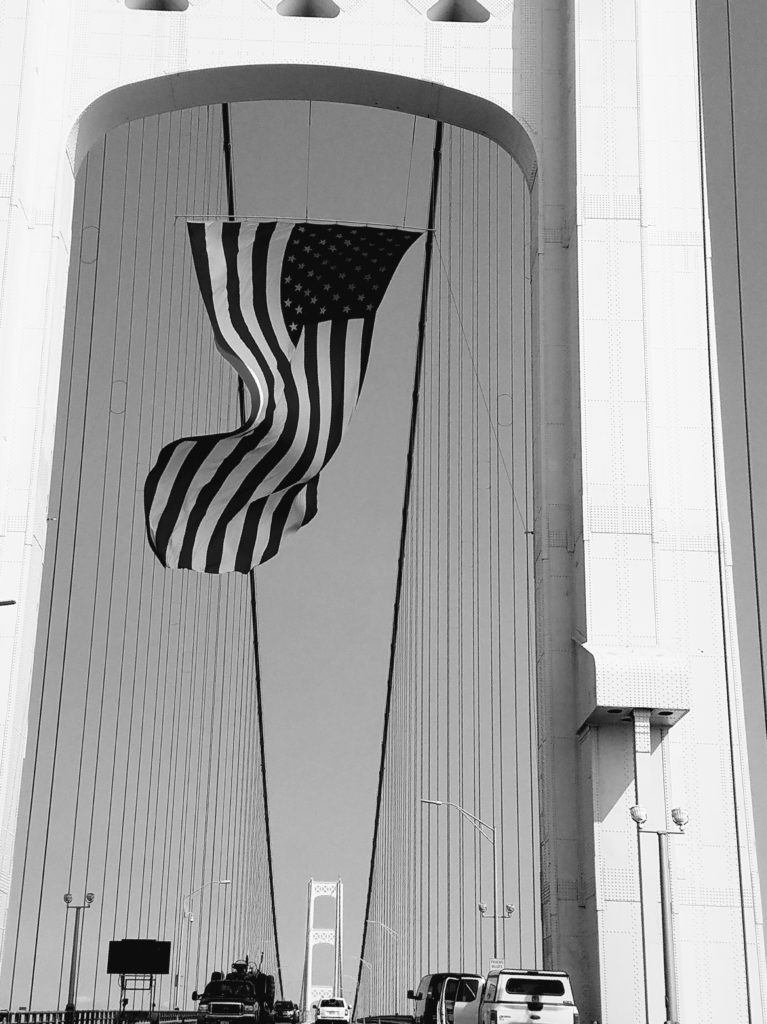


Tristen Gleason
“Sheri Lake” is featured as the cover photo for the 2018 edition of Snowdrifts.

Laura Ross
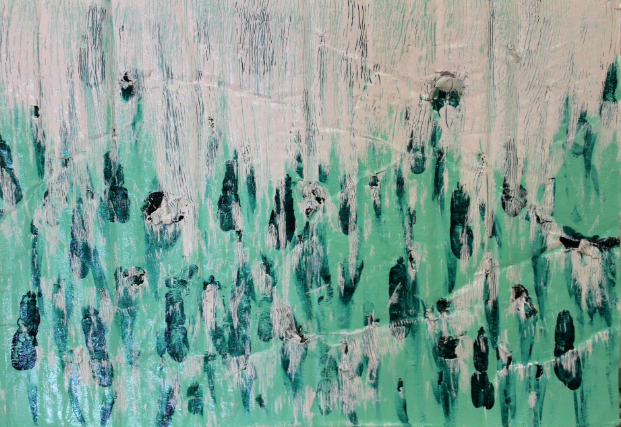

Taylor Worsham
And he collapsed there, so corrupted as a
metal object was just thrust into
his chest. His lungs disgorge chunks of
red plasma as he gasps for air. His body convulses on
the frigid February ground, trembling with agony.
Broiling crimson laminates my hands as I try to cover
the gaping, pulsating wound. He’s heaving, just
struggling to stay alive. Pleading screams echo down dark, empty
alleyways, the cold winter air numbing my throat, but it’s not
loud enough.
My love gushes from the inside out, choking, breathing his own
red iron. He’s dispiritedly drowning in it while my fresh, warm
tears fall onto his paling cheeks. My body becomes his, and I
feel a lightning, pulsing pain in my chest. I feel my life,
fleeting.
His frail heart beats once more and his muscles completely
soften, his fern eyes stare indefinitely and know now that
he is swept into the wind. Intertwining our
cold fingers together, I gently plant pink roses on
the apples of his cheeks with my lips–
His blood dries in the snow–
I finger the wool fabric covering
his ash skin– My stomach is at my knees–
And my fingertips tremble
in this brutal wake–
We lie down together on that street, for hours and I bury
myself into his chest. I watch the snow fall onto his
lips– His body warmth slowly fades with each passing
moment– I gently coax butterfly kisses into his ear, and in return–
I receive silence.